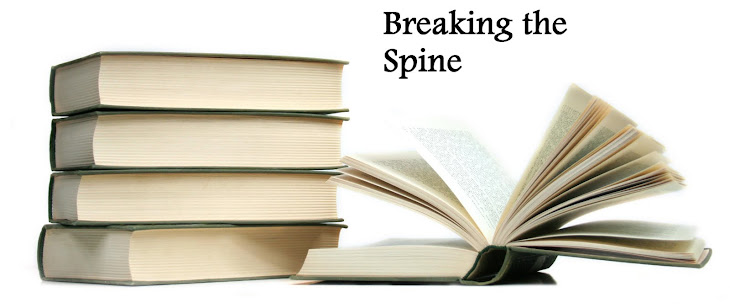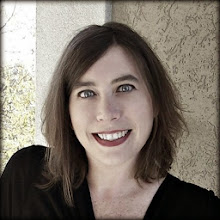
When I'm reading, I love coming across "just-right" passages that have me reaching for my quote book. With Quotables, I present authors with a meaningful (to me) passage from their novels and ask them to speak to it in whatever way they wish.

I recently finished Diane Meier's debut novel, The Season of Second Chances, a compelling later-in-life coming-of-age story that follows a college professor as she trades in Manhattan for Massachusetts and discovers how little she had actually been "living."
The following quote in the book really appealed to me (and, it turns out that it's one of the author's favorite passages, as well):
"Change rarely happens in doses large enough to choke you. Every day you swallow a little more and expect a little less."
From Diane Meier:
First of all, thank you for choosing this particular quote. It’s one of the things I like to read to groups who attend signings, as it – so immediately – lets us into my main character’s sardonic and thorny personality, while setting up the idea of change. And “change” is, of course, one of the central themes of the book.
When we first meet Joy Harkness, we can see right off the bat, that she’s smart, successful, well-educated, capable, independent, witty and fundamentally very, very cranky. What we suspect, is that she’s more considerable than she lets on. And – I hope the reader is ahead of Joy in recognizing those achievements and finding her an unreliable narrator – which, naturally, casts some question on so much that she tells us.

The idea of change in this book is two-fold. First, a change of loss. While this happens before we meet her, we learn that Joy had aspirations to lead a sophisticated life of purpose and connection to what she saw as the center of literary culture and New York was a big part of that dream. The childhood death of her brother, Tim, and what we might, in small bits of discovery, decipher as her parents’ subsequent and chronic depression, may have conspired to keep a number of social skills and a level of confidence beyond her grasp. Add to this a Second-Wave Feminist confusion, if not rejection, of things domestic and previously sanctioned as ‘feminine’, and we have a character destined to miss the chances of self-discovery and self-expression that could make up a more fulfilled and healthy life.
The very “joy” in Joy’s life just leached away, through the decades. She allowed herself few pleasures, and most of them could be found within the covers of her beloved books, but her caustic wit was both a personally enjoyable distraction and a way to keep the world at bay. Most of all, the loss was in doses so incremental, it, literally, went unnoticed and unacknowledged.
The second change was of gain: From the moment Joy accepts the interview with Bernadette and looks forward to the job being offered, we might suppose that the woman who had never unpacked her china, or had a visitor to her apartment, or took a stand at her university, or made more than one friend on campus, might have made a secret, or at least, a subconscious, decision to embrace change. And I suspect, somewhere deep and unspoken, Joy knew it was likely to be one of her last chances for a major change in an unfulfilling life.
It is, I think, interesting and so much more like life, that we don’t see Joy change overnight. It’s all very incremental and she is exasperating in her missteps. But I think the change is more profound for the fact that each step is so hard won. With each gain, we see the toll of vulnerability and risk. And somewhere along the line, we spot Joy beginning to acknowledge and appreciate her own development.
If Bernadette had leveled the discussion about style and its importance in life, much earlier in the story, can you imagine Joy understanding a word of what she was talking about? I can’t. That’s how much growth has gone on in that one winter of change.
Only one real season, and yet the growth was still, evidently, so slow. But like the song that promises the rose in Spring, there is the confirmation of change and transformation in every part of Joy’s new idea of possibility.
Thank you, again for asking about this. It’s a part of the book I love and I’m just delighted it connected with you, too.
Click here to visit Diane Meier's website.







7 comments:
I used the same quote in a Tuesday Teaser a few months ago (I had an uncorrected proof for review). I really enjoyed this book.
What a wonderful post. I really enjoyed reading about this author's viewpoint on her book. Thank you
I need to keep a quote book. I actually just bought a journal not too long ago that I'm not using right now, so I could probably use that as a quote book. I used to highlight in my books the quotes I like, but I've turned into a stickler about keeping my reads as neat and clean as when I bought them. Maybe I shouldn't be so afraid to mark them up, I don't know. Haha. But, again, great quote. I've actually thought about reading this one this summer.
Received this book not too long ago and am excited to get into it. Nice review!
This was great Jill. I actually liked Diane M's new book a lot.
BTW...yes you can come and stay a while and read any of my books you'd like :)
Thank you for this posting. Reading these comments from you and the author added even more to my enjoyment of remembering a good reading experience!
I think this is among the most vital information for me.
And i'm glad reading your article. But want to remark
on some general things, The site style is great, the articles is really
nice : D. Good job, cheers
Stop by my blog post ... 오피사이트
(mm)
Post a Comment